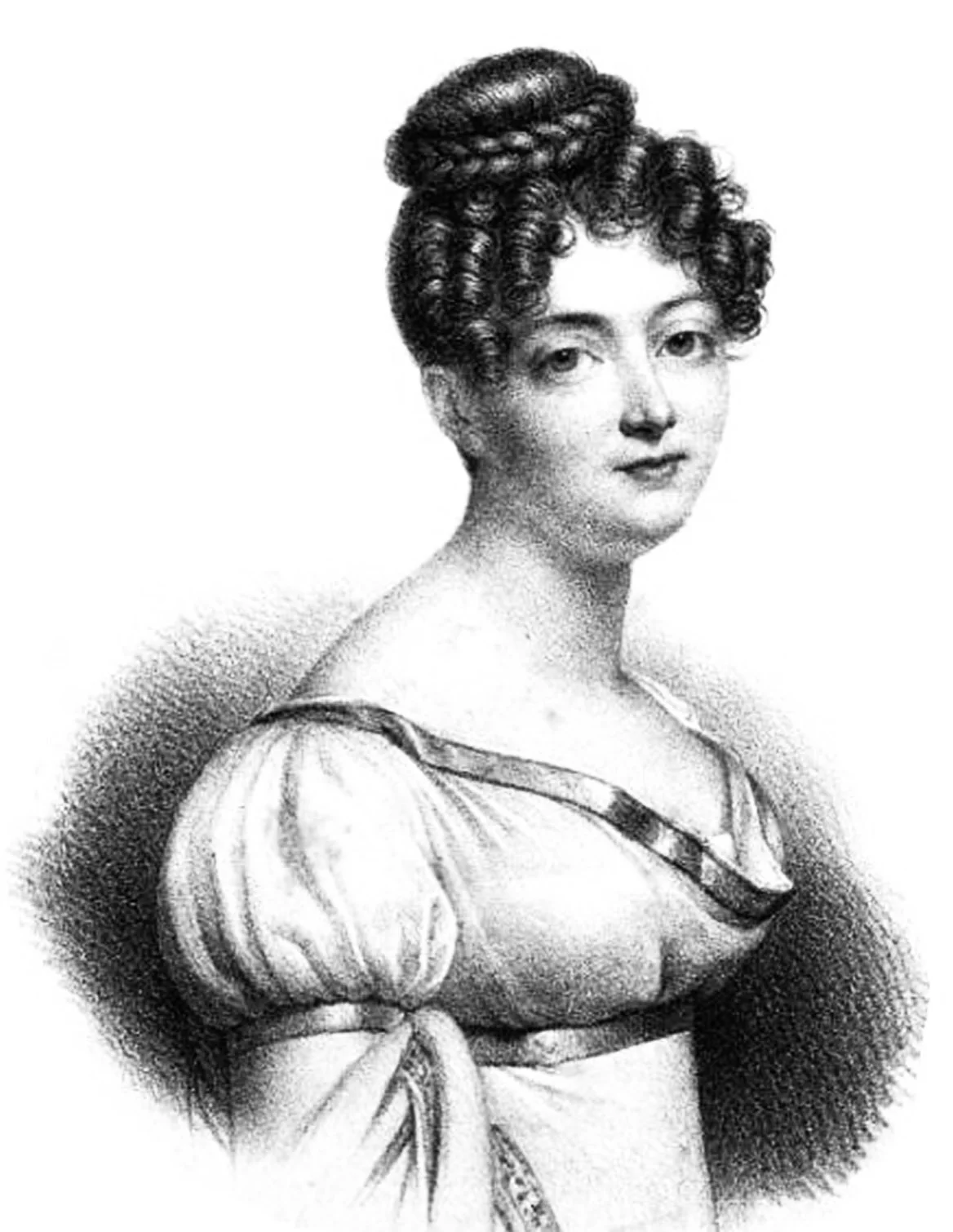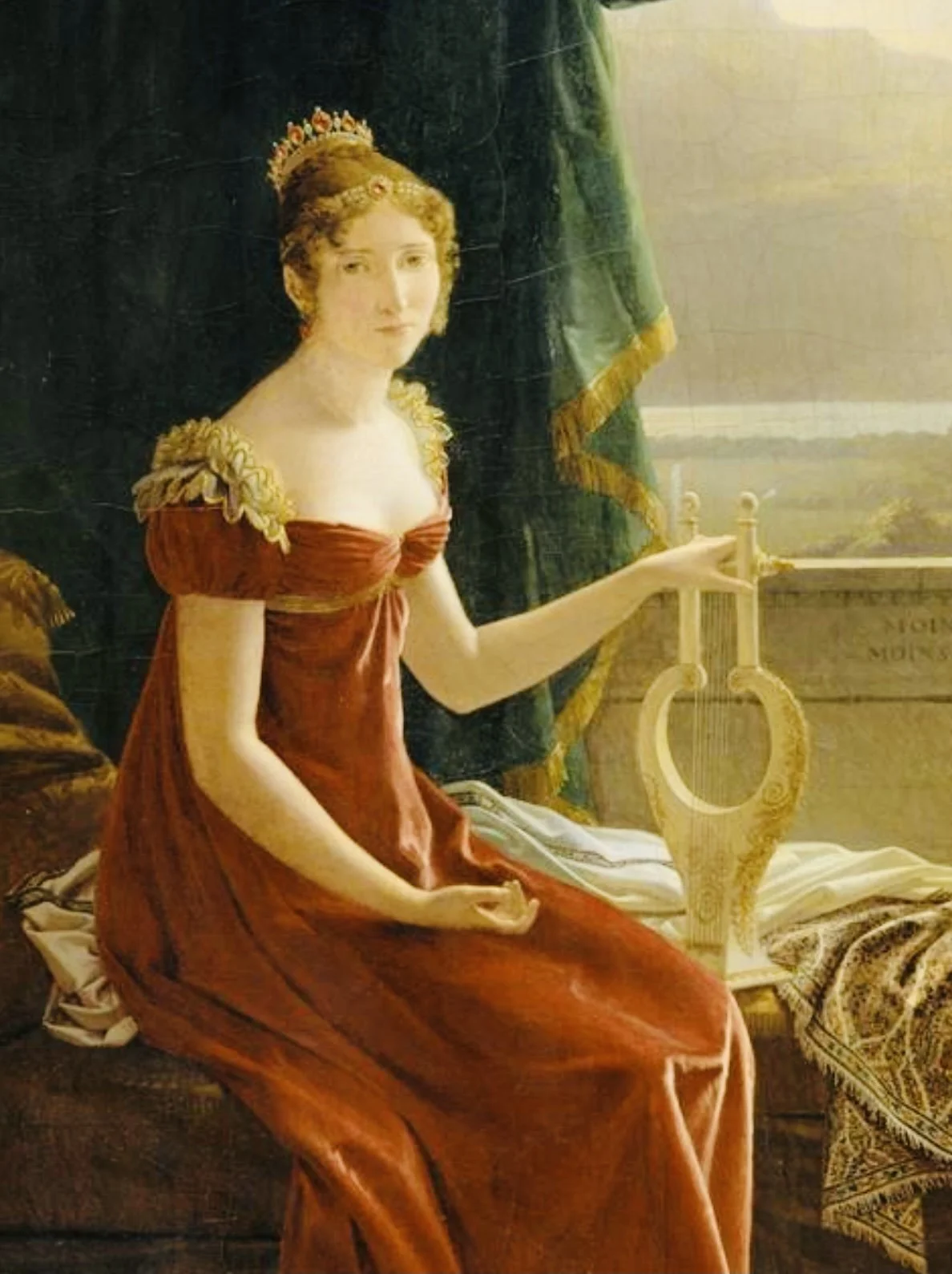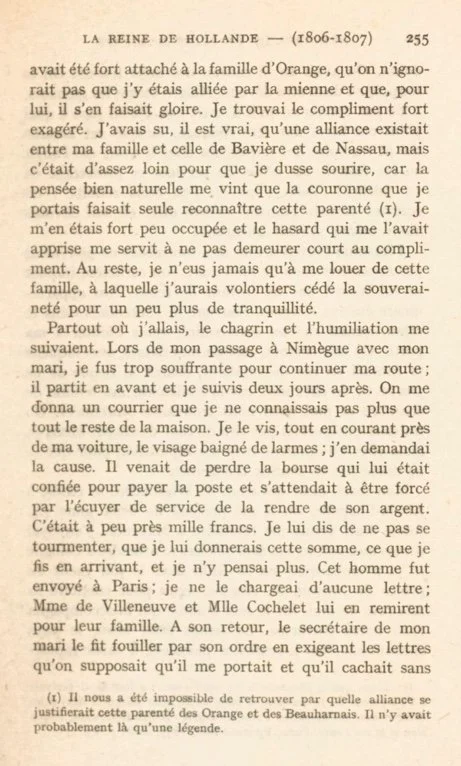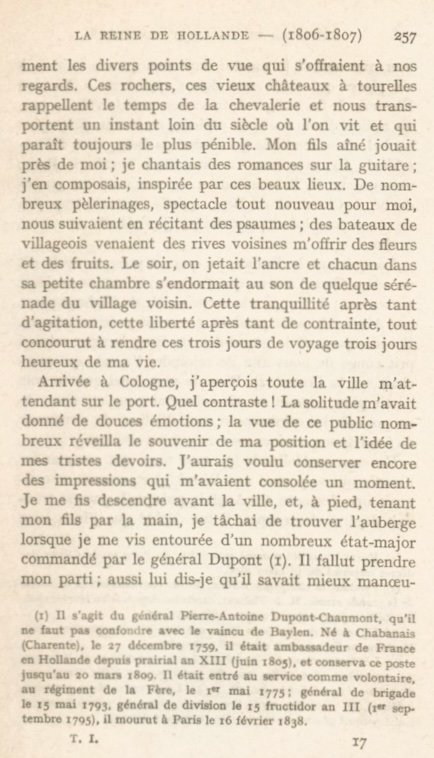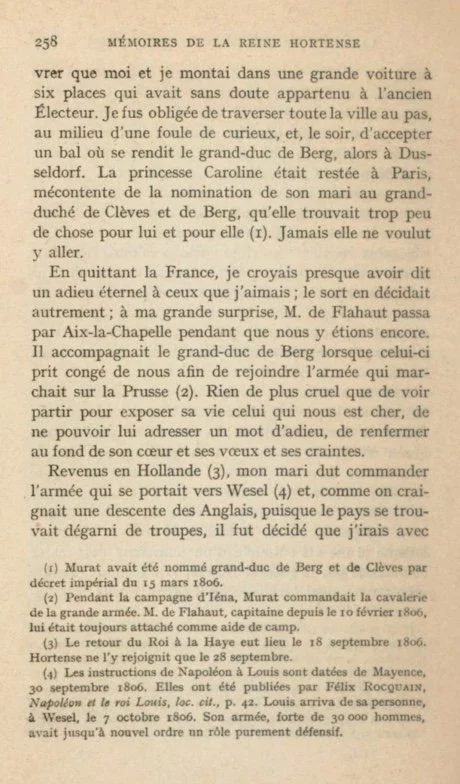Let’s have another look at Hortense’s Memoirs. If you want to read the book it is available for free at the side bar in English and French. Use the widget on the sidebar to translate the text below into pretty much any language.
In an abusive situation someone has to be the “bad guy”. The abuser most certainly doesn’t want it to be them - even in their own mind. Often the abuser becomes obsessed with maligning the victim.
In this excerpt, we see how a tormented tormenter smears, and frames and publicly humiliates his innocent victim.
We also see the escalation of even more war.
Hortense’s memoirs continues:
We did not remain long in Holland but went on to Wiesbaden where the King wished to take the waters on account of his health. We lived in the Palace of Mayence.
The Grand Duchess of Darmstadt as well as many foreign princes and those belonging to the house of Nassau came to see us. The latter gave us a charming entertainment at the palace.
Prince Charles of Nassau told me one day that he had heard how popular I was already in Holland, a country which had been greatly attached to the family of the Prince of Orange. People knew I was related to this family, and he himself gloried in that fact. I considered the compliment rather exaggerated.
I knew there had been a marriage between my family and that of Bavaria and Nassau, but it had occurred so long ago it was not to be taken seriously. Indeed, it struck me as highly probable that it was the crown I now wore which caused people to recall this relationship.
I had never paid any attention to it and it was merely by chance that I knew of it and understood the Prince's compliment. On the other hand, I never had any reason to feel hostile to his family and would gladly have exchanged my royal rank for a little of their peace of mind. Everywhere I went something disagreeable or unpleasant happened.
When I passed through Nimiguen with my husband I was so ill I could not continue my journey. The King went on alone and I followed two days later. I did not know my new courier any better than I knew the other members of our household.
Catching sight of him running beside the carriage with tears streaming down his cheeks, I asked the reason. It seems he had just lost the purse which had been given him to pay the post horses, and expected that the equerry in charge would oblige him to meet the loss out of his own pocket. The sum was about a thousand francs. I told him not to worry, that I would give him the money. I did so on our arrival and forgot all about the matter.
This man was sent back to Paris. I gave him no letter to take back, but Madame de Villeneuve and Mademoiselle Cochelet gave him some notes for their family.
On his return my husband's secretary, acting on his master's orders, had the courier searched and demanded the letters he was thought to be bringing me, concealed about his person. The gift of the thousand francs had become known I was supposed to have bribed the messenger. In spite of all the threats he was unable to hand over what he did not have in his possession.
It is easy to imagine how deeply my feelings were hurt when the courier told me of the treatment he had undergone, at the same time offering me his services and assuring me of his devotion. I had been reduced to this: a servant believed he could be of service to me, and even his devotion was an insult.
I fancy, however, that my torments cannot have been as great as those of my husband. His restless nature did not give him an instant's peace. Our apartments were some distance apart. Frequently I heard him in the drawing-room, when everyone else had retired, steal up and listen outside my door. One evening one of my ladies in waiting with whom I was chatting while getting undressed came near having to spend the night in my room, for the next morning my chambermaid and I discovered that we had been locked in.
Generally, we laughed about so many strange occurrences, but they injured my reputation to such an extent that I felt them deeply. My husband, leaving the waters of Wiesbaden, went to Aix-la-Chapelle, where I followed him two days later. Adele had joined me at Mayence. I sent all my carriages and the officers of my household to wait for me at Cologne and embarked on the Rhine aboard the handsome yacht belonging to the Prince of Nassau.
Monsieur Auguié, who had come there in order to bring his daughter to me, was the only man who accompanied me while we were on the water. The weather was fine, the scenery delightful. We spent our time admiring the different landmarks which passed before our eyes.
These rocks, these towered keeps recalled the age of chivalry. The sight of them transported me back to the past, away from the age we live in, which always seems the least attractive. My eldest son played near at hand, while I sang ballads and accompanied myself on my guitar. I also composed some ballads myself, inspired by the beauties of the landscape.
Many pilgrims, such as I had never seen before, followed us reciting psalms, and from the neighboring shores the villagers put out in boats to bring fruit and flowers. In the evening we anchored and fell asleep, each in a little cabin, soothed by the sound of a serenade from some village nearby.
This calm after so much agitation, this freedom after so much constraint combined to make these three days of sailing three of the happiest in my life. When we arrived at Cologne, I saw the entire population waiting for me on the shore.
What an abrupt contrast. The calm solitude had delighted me; the sight of this crowd revived the memory of my rank and the sense of my duties. I wished to preserve as long as possible the memories of the days just past. I stepped on shore before reaching the official landing-stage, and on foot, leading my son by the hand, I sought to discover the nearest inn. But I was quickly surrounded by a numerous escort commanded by General Dupont.
There was nothing to be done. I admitted to the General that he had outmaneuvered me and I climbed into the great stage-coach, big enough for six people, which had doubtless belonged to the former elector. I was obliged to pass through the city at a snail's pace in the midst of a curious crowd, and in the evening attend a ball given for me by the Grand Duke of Berg, who was staying at Dusseldorf. His wife Princess Caroline had stayed in Paris, dissatisfied with her husband's appointment as Grand Duke of Berg and Cleves, which she considered less than his and her—desert. She never would consent to go there.
On leaving France I thought I had said a last farewell to all those whom I cared for. Fate ruled otherwise. Monsieur de Flahaut passed through Aix-la-Chapelle while we were still there. He accompanied the Grand Duke of Berg when the latter called to say good-bye before joining the army which was marching on Prussia.
Nothing is more painful than the sight of the man who is dear to you leaving to expose his life. How sad it is not to be able to say a word of farewell, to be obliged to stifle in one's bosom all one's prayers and fears! When he returned to Holland my husband was obliged to take command of the army that was marching towards Wesel. As a raid by the English forces was feared, owing to the country's having been stripped of troops, it was decided my children and I should go and live with my mother, who had accompanied the Emperor to Mayence and was to remain there for the duration of the war.
The original French is available below:


